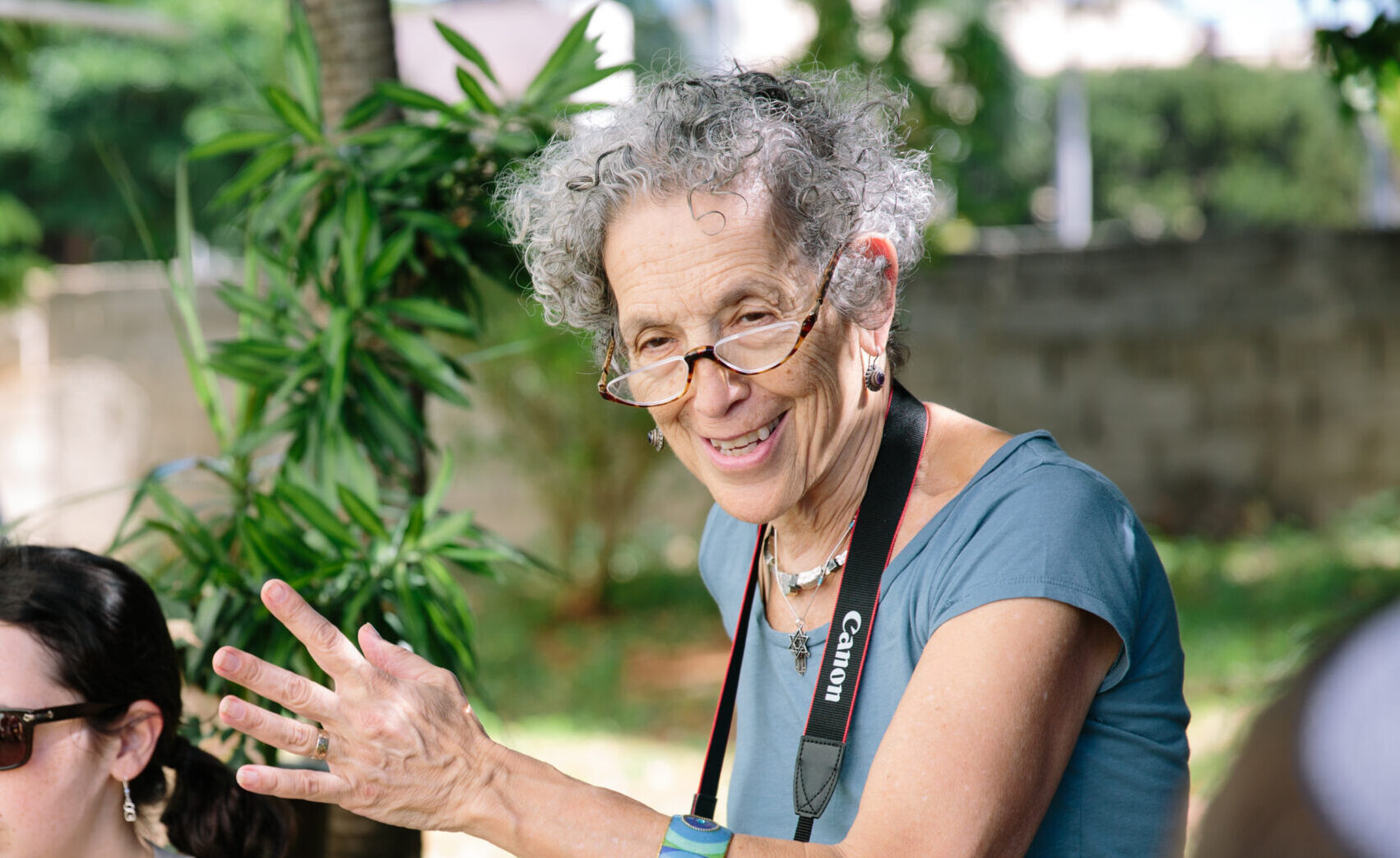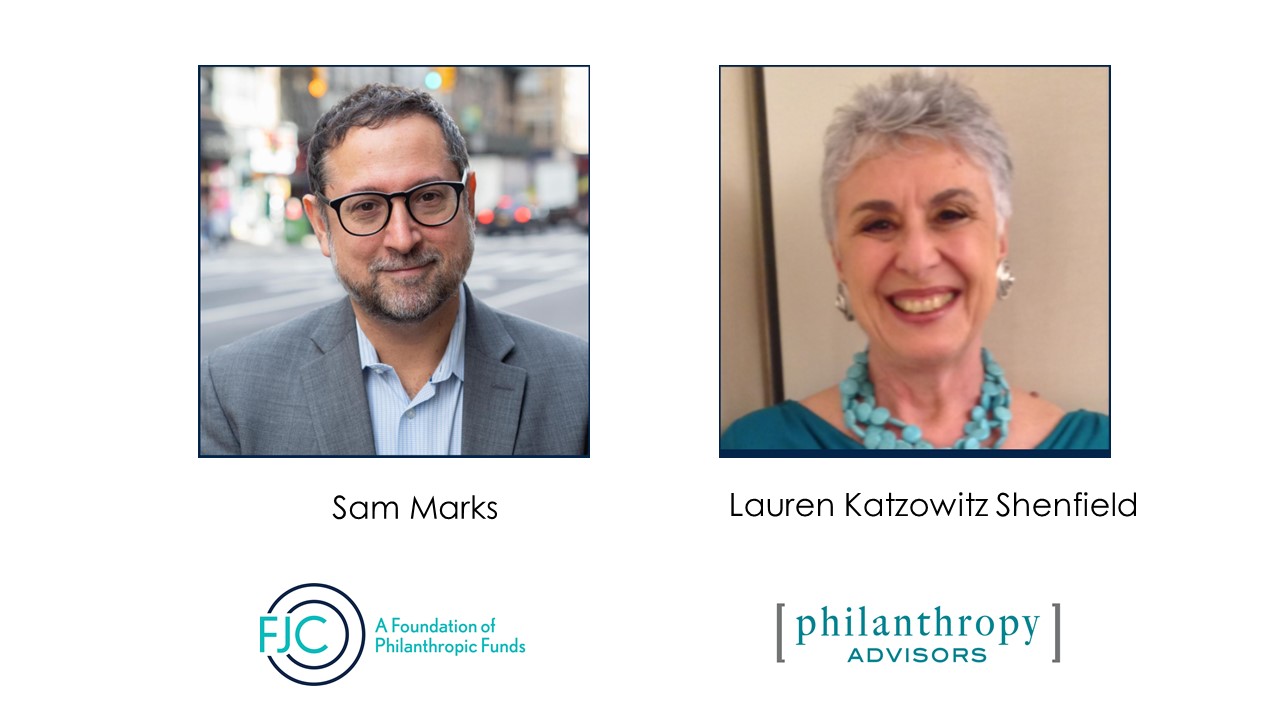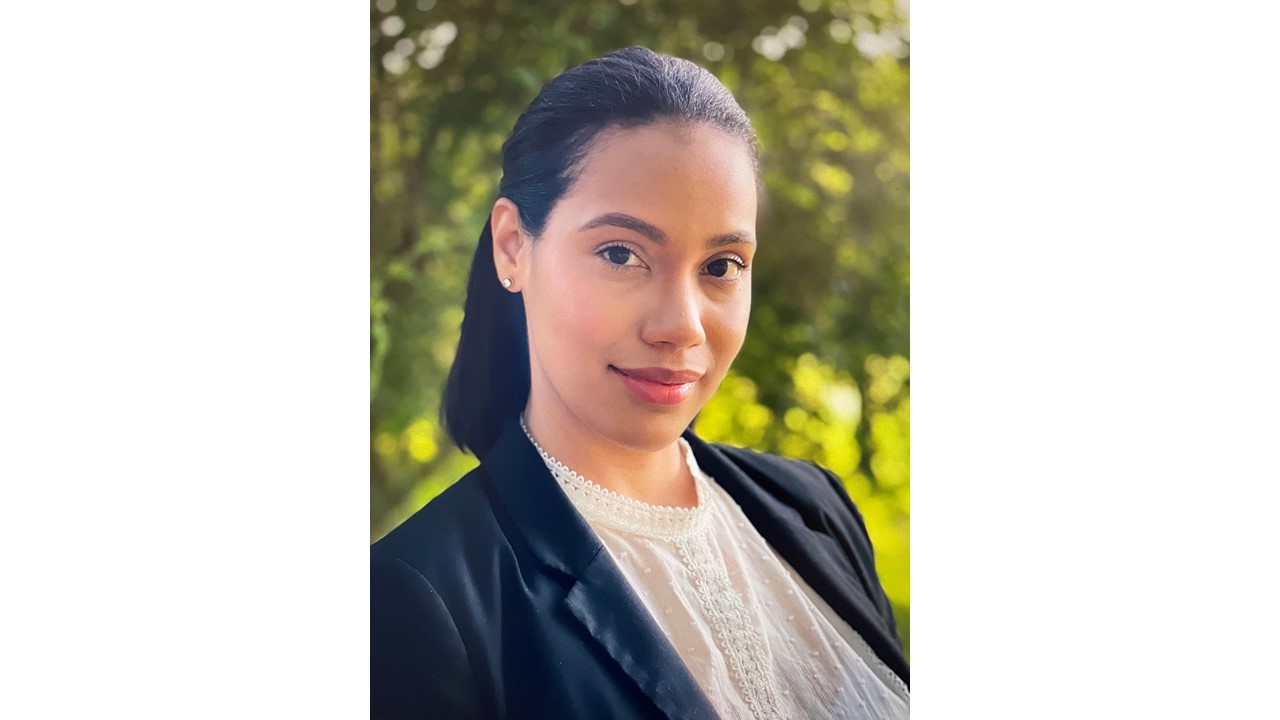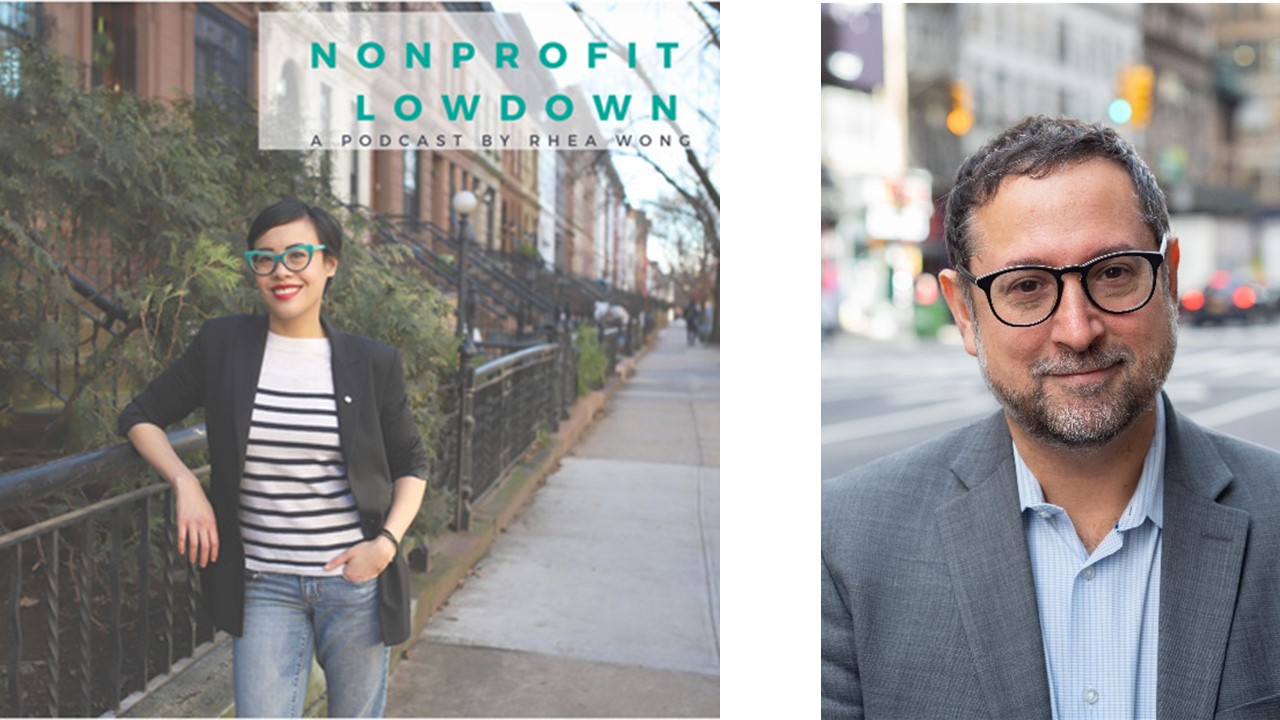As we look to the decade ahead, my husband and I have been thinking a lot about how our current and future philanthropy can continue to build on our life’s work, mine in local and global social justice, his in education and both of us in moving toward a more just and equitable city/nation/world. We are now at the life stage when we are planning for the legacy we can leave to our adult children and grandchildren and to the causes we care about. We are truly fortunate that we can consider philanthropy as a part of that legacy.
We’ve had a donor advised fund account at FJC for over twenty years, and during this time we have used it to make dozens of grants each year to organizations we know well and whose work we admire. This has included, for me, regular annual gifts to American Jewish World Service which I was privileged to lead for 18 years and where I still do some work; Surprise Lake Camp, the nation’s longest-running Jewish sleepaway camp, with which my family has had a relationship for over one hundred years; and SAJ, our synagogue for the last 52 years.
“As we think about issues of succession and inheritance, we are taking the time to think bigger and more ambitiously about what our philanthropic resources can do…”
Ruth Messinger, FJC Donor
It has also included gifts to such significant organizations, inside and outside the Jewish community, as the Equal Justice Initiative, the Nation Fund for Independent Journalist, the American Civil Liberties Union, Hazon, Avodah and others. In addition, we have given substantial amounts of money to progressive tax-exempt 501(c)(3) voter mobilization organizations like Movement Voter Fund or Focus For Democracy.
As we think about issues of succession and inheritance, we are taking the time to think bigger and more ambitiously about what our philanthropic resources can do, and we are working with the team at FJC to take some of our ideas and put them into practice, acknowledging both our individual and our joint interests
I am in the process of drafting a will that will provide bequests to my three children and eight grandchildren and to my current and future great grandchildren, and then fund a family DAF account with my three children as authorized signatories. In an accompanying memo to the will, I am doing two things. I am letting them know what some of my causes are in case they want to keep some of those on their list and—more importantly—I am telling them how I hope the fund will operate.
I have tried, with my husband, to prioritize social justice and anti-racist organizations like the Southern Poverty Law Center and the Equal Justice Initiative, to protect the human rights of all marginalized populations, and to address the immense challenges to voting rights, to immigrant rights and to climate change. I hope that the Fund will consider making small closeout grants to some of the international organizations I have come to know and support through AJWS like Minga Peru, Beyond Borders, Aegis Trust, Fonkoze and UDEFEGUA.
“My husband and I have led incredibly meaningful lives of public service, which have continued even as we have left our CEO jobs. For all of our accomplishments, we know the work of making a better world is never truly done.”
Ruth Messinger, FJC Donor
I am urging my children to decide how long they want to keep the fund alive. I am counting on their involving the next generation in their funding considerations, create opportunities to discuss different options for these charitable dollars, and work to come to consensus about their decisions, but I’m also realistic. My kids have been warm and loving siblings, but their priorities may evolve in different directions. So, if they feel that the process is causing conflict and they want to divide the DAF account into three separate funds, that’s fine with me too.
My husband Andrew Lachman is taking a different planning approach with FJC. A longtime advocate and practitioner in public education, Andrew is passionate about supporting innovations in local school districts around the country that lead to demonstrated learning improvement. He is bringing together a half-dozen experts with whom he has worked or whose work he admires who will help guide this national strategy. This initiative is a work in progress. Andrew is anticipating a family inheritance soon, and depending on a few factors, it’s possible he may be able to fund this effort with enough resources for it to have meaningful impact over a long period of time, starting while he is still alive. How long should the work continue? Who should drive its activities? Will it have paid staff? These are questions that are still to be determined, and we are working them out with the staff at FJC, including whether there may be a role for FJC in the initiative’s future stewardship.
My husband and I have led incredibly meaningful lives of public service, which have continued even as we have left our CEO jobs. For all of our accomplishments, we know the work of making a better world is never truly done. So our conversations about estate planning also mean talking about philanthropy. We believe that inheritance is about more than just money and real estate; it’s an opportunity to impart values and influence what carries on to future generations. That is what we hope we are doing with these decisions.
FJC’s blog series, “Why I Give…And How,” gives voice to some of our most committed and imaginative donors.
The author Ruth Messinger served on the New York City Council from 1978 to 1989, representing the Upper West Side, and served as Manhattan Borough President from 1990 to 1998. She was the President of American Jewish World Service from 1998 to 2016.









